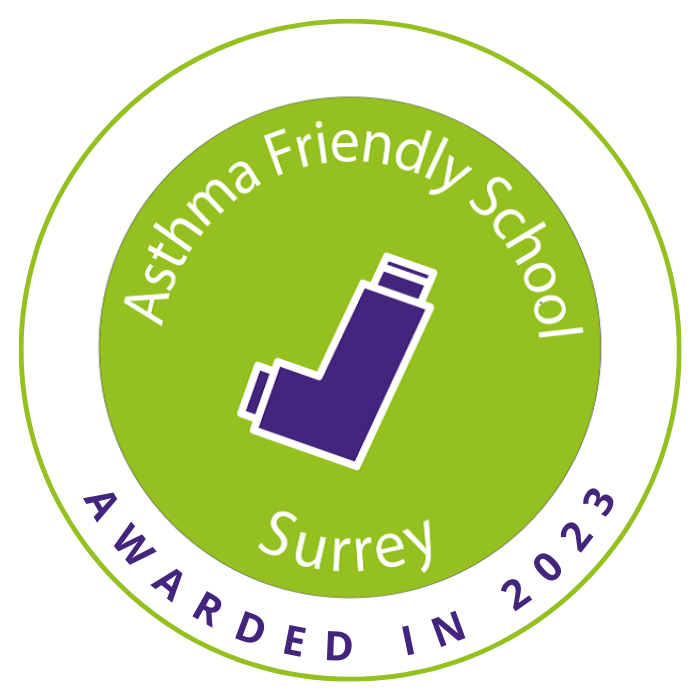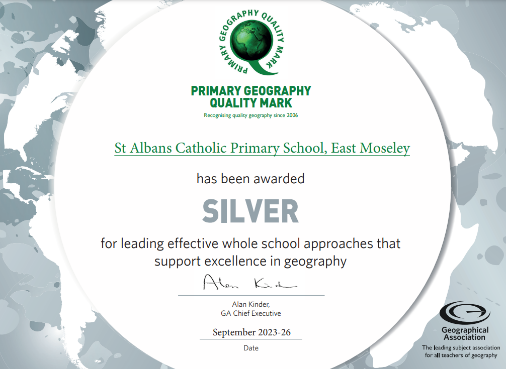English
English is at the core of all our other subjects. We wish to develop in our children a love of language both written and spoken that will go with them into adulthood. We believe a high standard of speaking, listening, reading and writing skills will place our children at an advantage in their wider curriculum studies.
To achieve our aims, we endeavour to:
- Create a safe caring environment in which all children feel encouraged to speak and listen as appropriate.
- Give children access to a wide variety of stimulating literary texts, including both fiction and non-fiction.
- Hear children read on a regular basis and send reading books home daily along with a reading record for teacher and parental contributions.
- Provide children with the opportunity to produce a range of written work developing skills across a variety of genre, eg – narrative, information and poetry.
- Enable children to use correct spellings and grammar.
- Encourage children to develop a clear and legible handwriting style.
- Maintain records of pupil achievement to assess their progress and build upon their success.
Reading: word reading and comprehension
Our main objective is to foster in children a love of reading. They will be encouraged to value books and read for learning and enjoyment, from a wide range of literary texts from all genres. This is supported by the use of the phonics scheme Read Write Inc and daily reading lessons and opportunities throughout the school.
Children will be encouraged to read with fluency and understanding, utilising a combination of strategies including phonic knowledge, contextual clues and sight vocabulary. Children’s awareness of syntax, punctuation, expression and comprehension will be developed and assessed through explicit teaching of reading as well as individual reading. Class reading texts are linked to the wider curriculum.
Alongside our reading curriculum, the children are supported by Accelerated Reader which is a powerful tool that helps children choose books that match their interests and reading level. It encourages independent reading and builds confidence while also supporting children's own individual progress. This personalised approach motivates children to read more, deepens comprehension, and promotes a sense of achievement which in turn promotes accelerated progress in their core reading skills.
In addition, you can find books for all primary school age groups on The BookTrust website (BookTrust is the largest reading charity in the UK):
Our book recommendations | BookTrust
Writing:
Transcription
We aim to develop in our children a passion and skill for writing in which they feel comfortable experimenting with different styles and formats to express their ideas. From the Foundation Stage, all children’s attempts at writing, including emergent writing, are valued and built upon, so that children appreciate the importance of their writing in conveying meaning to the reader.
Handwriting is taught explicitly from the earliest stages, beginning with mark making and letter formation in EYFS. Children develop fine motor skills through play and targeted activities, building the strength and control needed for writing. As they progress, they learn pre-cursive letter formation in KS1, leading to the development of fluent, joined cursive handwriting in KS2.
In KS1 and KS2, SPAG (Spelling, Punctuation and Grammar) is taught both discretely and as an embedded part of English lessons. It is carefully sequenced so that children are able to add complexity to their writing as they progress through the school.
National Curriculum English - Spelling
Composition
At St Alban's, we follow an I do, We do, You do approach where pupils are exposed to high-quality modelled examples that expose them to rich vocabulary, varied sentence structures, and powerful ideas. It builds confidence by providing clear examples and supportive scaffolding, allowing children to understand the writing process step-by-step. Shared writing encourages collaboration and discussion, helping pupils internalise strategies and vocabulary. As they transition to independent writing, children apply these skills with greater autonomy, developing ownership, creativity, and resilience. This approach ensures all children are supported while being challenged to grow as thoughtful, capable writers.
As children progress through the school, they learn that the writing process is not linear, but one that involves revisiting different phases such as planning, drafting and revising. This supports them to become reflective, independent writers who can evaluate and improve their work thoughtfully, making purposeful choices to enhance clarity, impact and structure.
Oracy plays a vital role in helping children develop rich vocabulary and the ability to construct increasingly complex sentences. Through structured talk activities, pupils learn to express their ideas clearly, listen actively, and build on others’ contributions. This spoken language practice supports writing by encouraging children to experiment with ambitious vocabulary choices and varied sentence structures. Teachers model high-quality language and provide opportunities for purposeful dialogue across the curriculum. As children become more confident speakers, they gain the tools to communicate effectively and creatively, laying a strong foundation for success in both literacy and wider learning.






